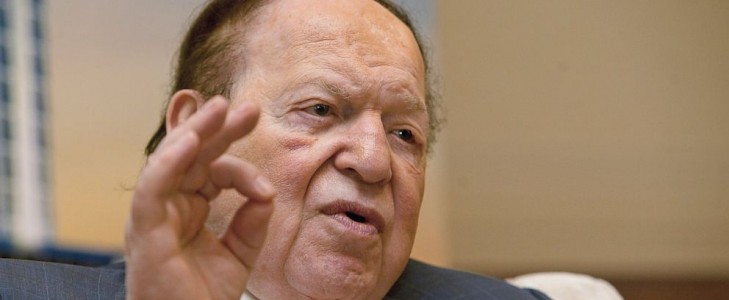Online gaming enthusiasts have complained for months that the Restoration of America’s Wire Act (RAWA) is nothing more than a bill used to further the interests of Las Vegas Sands owner Sheldon Adelson. And now, it looks like several freedom groups have amped up the criticism of RAWA, which seeks to ban U.S. online poker and casino games on a federal level. Specifically, the Campaign for Liberty, Council of Citizens Against Government Waste and a few other groups sent a letter to the Chairman and Ranking Member of the House Judiciary Committee railing against RAWA. That said, let’s discuss the key points of the letter and what impact it could have.
States should decide if they want Online Gaming
The biggest point that these freedom groups want to push is that it should be the states – not the federal government – that decide on iGaming. The authors claim RAWA “would trample the rights of states, open the door to regulation [of] the Internet and is a textbook example of cronyism. Over twenty conservative and liberty-minded organizations have voiced their opposition to the legislation. Recent news pertaining to fantasy sports sites like FanDuel and DraftKings speak strongly to the idea that this is better left to the states that tend to have tough regulatory schemes.”
Let States continue making the Decisions
The freedom groups’ letter includes another point urging the Judiciary Committee to let states approve or ban iGaming. The letter reads “if the industry needs regulations, it is the responsibility of the states to impose them and to be diligent. Since the enactment of the Constitution, states have dealt with the issue of gambling. From Utah and Hawaii, with no form of gambling, to New Jersey and Nevada, which have legalized casinos, this is an issue best served through state and local governments.”
Uphold the Tenth Amendment
Another key point by the freedom-oriented groups is that, if passed, RAWA would overturn laws in states that already have legal online poker and casino games. And this would be a clear violation of the Tenth Amendment, which reads “powers not delegated to the United States by the Constitution, nor prohibited by it to the States, are reserved to the States respectively, or to the people.” Long story short, a defeat of RAWA would be a win for states’ rights.
This Letter helped stop RAWA from getting a Hearing
Adelson and the major politicians on his side – Rep. Jason Chaffetz (R-UT), Sen. Lindsey Graham (R-SC), Marco Rubio (R-FL) – have been seeking a congressional hearing to get RAWA passed. However, as mentioned before, it doesn’t look like this will happen. And we can owe a large thanks to the letter by these freedom groups as well as efforts by others.
Given that Adelson’s Coalition to Stop Internet Gambling (CSIG) probably isn’t getting a hearing in 2015, they held a press conference instead. And this caused further embarrassment to the organization when their press-conference announcement was filled with spelling mistakes and outright lies. For instance, they spelled implementation as “implantation” and claimed that the Wire Act of 1961 was created partly to stop online gaming – despite the fact that the internet was still 30-some years away from creation.
Adelson’s billions of dollars and heavy lobbying always make RAWA a threat to legal iGaming. However, given the work by the freedom groups and the CSIG’s lack of a substantial argument, this threat is getting more and more distant.
